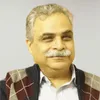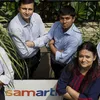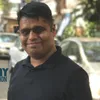Empowering the visually-impaired to become independent: the story of Saksham Trust
Founded by Dipendra Manocha and Rummi K Seth, Delhi-based Saksham Trust is helping children with visual impairment become independent with their various technological solutions.
“I don’t perceive myself to be any different from a sighted person. While they can see, I can feel. In fact, I believe I can do anything that they can do, but just in a different way,” says a confident Anil Kumar from Delhi, who believes he is truly Saksham (capable).
Such is the feeling of independence that Saksham Trust — a Delhi-based NGO — is creating among persons with visual impairment.
Founded in 2003 by Dipendra Manocha and Rummi K Seth, Saksham Trust works with people with visual impairment. The sole aim of the trust is to empower persons belonging to this marginalised section of society through a variety of strategies.
“While working with the National Association of the Blind, Rummi and I realised that we needed a specific logistics system to distribute the assistive technology devices to the visually impaired. So, to tackle this primary issue, we started Saksham,” Co-Founder Managing Trustee Dipendra Manocha tells SocialStory.
The award-winning NGO has taken up several projects in four specific domains to reach out to hundreds of students with visual impairment. These domains include assistive technologies, education programmes, accessible books, and audio descriptions of movies.

Dipendra Manocha and Rummi K. Seth
Providing affordable assistive technology
Over the years, persons with disabilities (PwDs) have been witnessing a rise in assistive technology devices. These devices include braille watches, talking watches, talking thermometer, talking weighing machine, sonic labeller, DAISY (Digital Access Information System), and audiobook players, besides technology solutions for computers and talking software for mobile phones. However, most of them remained inaccessible for a long time.
“The biggest challenge was that people who wanted these devices had to travel long distances to procure them. In fact, delivering to this thinly spread community across the country is quite tedious and expensive,” explains Dipendra.
While most of these devices were available abroad, Saksham wanted to bring these devices to India to provide them at an affordable price. For this, it implemented three methods.
Firstly, it purchased these devices from outside the country in bulk and made it available to the target population. Secondly, it configured existing technology to suit the Indian community.

Assistive technology at Saksham - Refreshable Braille Display, Talking watch, talking calculator and a DAISY Player
And finally, it worked with multidisciplinary teams to build these solutions from scratch through an AssisTech lab — in collaboration with Indian Institute of Technology (IIT), Delhi — created specifically for this purpose.
These assistive technology solutions are self-driven and are not free-of-cost usually. However, being an NGO, Saksham has brought down the costs for its members. It also provides considerable subsidies to individuals who cannot afford the devices.
Saksham also caters to the deaf-blind community. In fact, its refreshable braille display technology — a device that refreshes the line of braille after every sentence — and the Smartcane, an electronic travel aid, have become lifelines for the persons with disabilities.
“The development of the refreshable braille display opened up a world of communication to the deaf-blind community, as any digital text could be read with this tool. In fact, we are providing the device free-of-cost along with training to the deaf-blind students,” says Dipendra.
These devices and more can be accessed through Saksham’s online store: www.saktek.in.
Other initiatives
Apart from building affordable assistive technologies for persons with disabilities, Saksham also carries out various initiatives in the education domain.
Under this, the non-profit has been conducting full-fledged inclusive education programmes, infant-toddler programmes, and vocational training courses for children with multiple disabilities at its Resource Centre in Noida.
It has also partnered with UNESCO for Audio-description, creation of tactile gallery and design of performing arts curricula and with UNICEF for production of accessible books and capacity building programmes.
Moreover, it carries out a unique programme of audio description of movies that translates images or other visual information or non-dialogue portions of film into spoken words and subtitles so that people who are blind or visually impaired and/or hearing impaired can access and enjoy movies together with their families, without waiting for them to explain what is happening on the screen. So far, the NGO has audio described more than 35 movies.
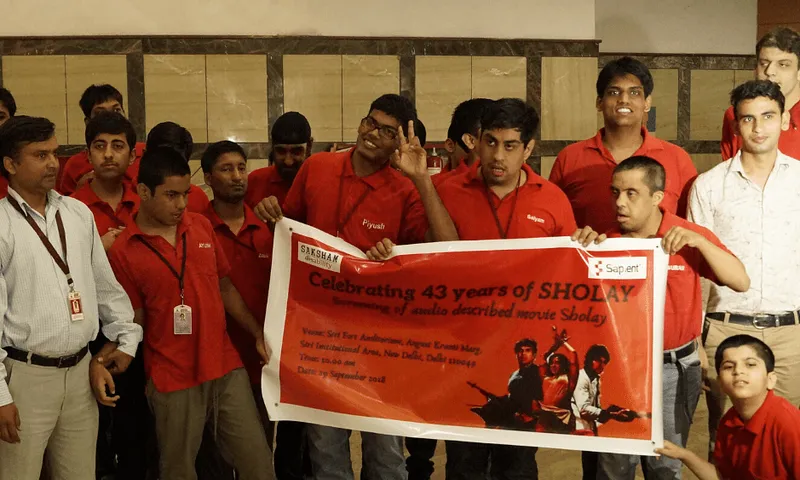
Saksham celebrating 43 years of Sholay with their audio description movie screening with the students
Saksham also started a Sugamya Pustakalya which is an online library for accessible audiobooks, magazines and reading materials for persons with print disabilities. The initiative proved to be a success, and gave persons with visual impairment access to books in accessible format in real-time, just like their sighted counterparts.
The NGO is funded primarily through individual and foundation-based donations from across India. It receives some donations from MNCs through their CSR spends.
A passionate team and volunteer base
Saksham has an employee base of 90 people. Apart from this, it also has a global volunteer base, who contribute to the NGO in the creation of accessible books – books that are recreated into an accessible format to help students with disabilities access them with technology.
In fact, some of the students who have benefitted from Saksham are now working for the non-profit. Chetna Nagpal was one such student who received the NGO’s support to join a mainstream school. She says that the teachers at Saksham were of great help when it came to everyday schoolwork and coping with classes.
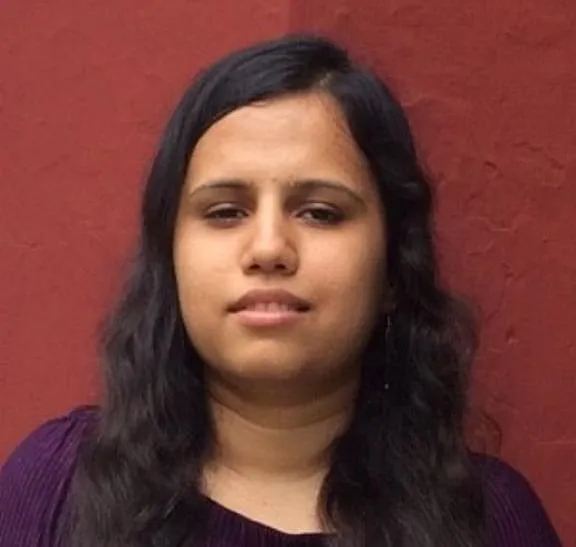
Chetna Nagpal
“After completing my graduation, I have been working with Saksham for about a year as an implementation officer, where we train students with disabilities on how to use assistive technologies,” Chetna says.
Apart from Saksham, Chetna and her friends started their own organisation called Goldenshine Cultural Welfare Trust to teach music to people with disabilities.
“We have professional teachers to take classes, and we have developed devices like the tactile guitar chord book, from which a person with a disability can easily learn without the help of a teacher,” she adds.
Saksham has four branch offices in Delhi, Uttar Pradesh, Punjab, and Himachal Pradesh. In other states, it collaborates with local organisations instead of opening a centre.
“We are also working with our partner organisations in other parts of the country to collaborate instead of trying to create our own infrastructure. In Bengaluru, we have collaborated with the NGO Mitra Jyoti to carry out our activities,” says Dipendra.
In fact, with the help of over 200 organisations across India, Saksham has come up with a concept of a nationwide network called the ‘Daisy Forum of India,’ specifically to help with accessible books and assistive technologies.
Operations during COVID-19
“Technology is essential when it comes to inclusion. So we provided our children with these devices and assistive laptops. They use it very frequently for their reading and writing activities. So, when the pandemic set in, our students were well prepared for their online classes,” Dipendra notes.
Despite the availability of resources, certain subjects like Mathematics are still not accessible due to limitations in most schools. While technology has played a major role in children’s education, not all online teaching platforms were accessible to children with disabilities.
“Most of the technology for online communication and learning platforms that have been made in India are completely inaccessible due to their incompatibility with our assistive devices,” Dipendra expresses his concerns.
“We can come up with any technology, but if resources are inaccessible, how does a visually-impaired student keep up? A simple collaboration can go a long way to help this community,” he adds.
Road ahead
“Right now, we’re in the process of converting our offline programmes into online programmes. Earlier, in our education vertical, our own teachers found it impossible to reach a remote student. But now, with the current scenario, we’re able to expand our reach into so many areas across the country,” he says.
Also, for the first time, the assistive technologies training sessions, which were long conducted as face-to-face classes, will find a space in online learning.
Moreover, the NGO’s resources are seeing a new demand during pandemic times. Many institutions, including Delhi University, turned to Saksham for assistive technology solutions during the lockdown.
“Our scope is increasing with this new normal, and we, at Saksham, are gearing up for that,” Dipendra concludes.
Edited by Suman Singh


